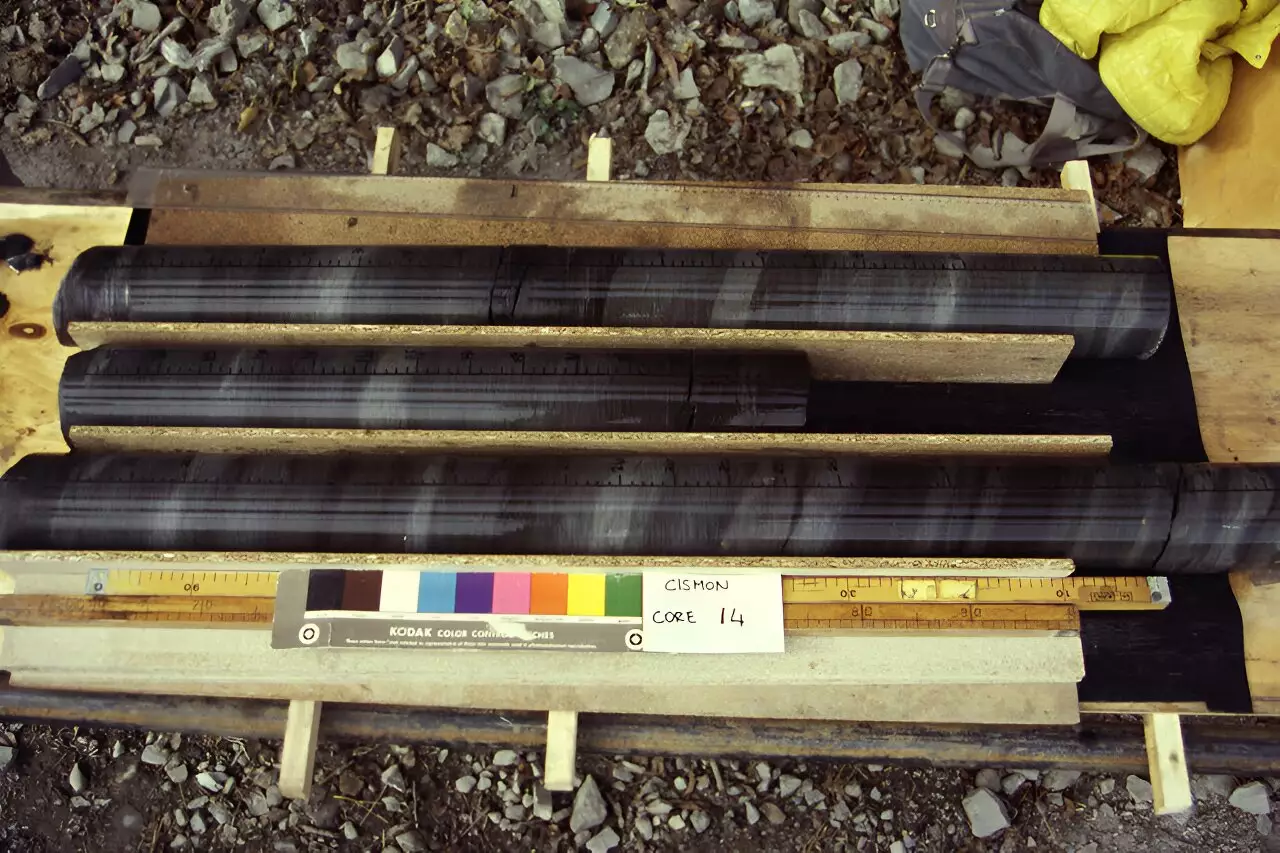Recent research published in *Nature* has illuminated the profound impact of volcanic carbon dioxide emissions on our planet’s ancient oceans, particularly during a period over 120 million years ago known as the Early Cretaceous. Conducted by a team led by Kohen Bauer from Ocean Networks Canada, this groundbreaking study sheds light on how such past events can offer valuable insights for understanding current climate change dynamics and the dire consequences of crossing critical thresholds. The study, aptly titled “A climate threshold for ocean deoxygenation during the Early Cretaceous,” emphasizes the interrelationship between atmospheric CO2 levels and ocean health, revealing that a climate tipping point, once crossed, results in widespread deoxygenation—an essential consideration in the context of today’s escalating greenhouse gas emissions.
To embark on this ambitious investigation, Bauer and his team meticulously analyzed sedimentary rock samples from the University of Milan archive, which date back between 115 and 130 million years. These rocks, artifacts of ancient oceans, serve as historical records of environmental conditions that can be scrutinized through their geochemical composition. By capturing a detailed account of past oceanic climates, the research team successfully reconstructed the conditions that led to accelerated rises in atmospheric CO2, providing a high-resolution narrative of climatic shifts that accompanied these changes.
According to Bauer, the findings illustrate a remarkable correlation between surges in volcanic carbon emissions and the onset of rapid ocean deoxygenation—an exaggerated state that persisted for over two million years. Such historical accounts raise pertinent questions regarding humanity’s current trajectory amidst rising CO2 emissions attributed to industrial activities, suggesting a possible reiteration of Earth’s past calamity if contemporary trends continue unchecked.
Forecasting climate scenarios foreshadows a potentially grim future — one in which the intensifying warming due to human-generated emissions may lead to conditions similar to those observed during the Early Cretaceous. In fact, Bauer warns that the speed at which anthropogenic CO2 is being released today greatly exceeds the rates seen in the aftermath of the most significant volcanic eruptions over the last half a billion years. The specter of ocean deoxygenation looms large, not only threatening biodiversity but also endangering human health and ecosystem stability. As ocean oxygen levels plummet, countless species are likely to experience adverse effects, leading to shifts in marine ecosystems.
The study posits that if the current trajectory continues, we may face dire repercussions, potentially perpetuating a cycle of ecological collapse that has roots in ancient history and repercussions that could traverse millennia. The stark warning is clear: we stand at the precipice of replicating historical failures if diligent climate change mitigation efforts are not prioritized.
Interestingly, the study also highlights nature’s recovery mechanisms. Following the extensive ocean deoxygenation events of the Early Cretaceous, Earth’s climate stability gradually returned as CO2 concentrations decreased, facilitated by weathering processes of silicate rocks—an essential mechanism underpinning the Earth’s long-term carbon cycle. This feedback loop for climate stabilization illustrates a silver lining in an otherwise alarming narrative: recovery is possible, albeit over an extended timescale that far exceeds human lifespans.
Bauer notes that the restoration of the oceans’ oxygen content came only after atmospheric carbon was sufficiently reduced below a critical threshold. Through natural processes, the Earth can regain its balance, but the duration of these cycles emphasizes the dangers of neglecting our current environmental crisis—a reminder that our actions today will echo throughout the ages, shaping conditions for generations to come.
To avert a modern-day crisis reminiscent of the catastrophic events witnessed in the geological past, a critical reevaluation of our interaction with the environment is imperative. The research underscores the growing awareness of aquatic deoxygenation as a planetary boundary—an essential regulator of Earth’s stability that must not be transgressed. As we navigate a future rife with uncertainty regarding climate impacts, it becomes vital to engage actively in climate mitigation strategies.
Initiatives such as the UNESCO Global Ocean Oxygen Network (GO2NE) aim to foster a collaborative framework in monitoring ocean oxygen levels, providing real-time data that is essential for predicting potential crises. By analyzing and understanding the geological records of our planet, we can draw lessons that will guide us toward a more sustainable future—one where the mistakes of the past do not repeat, and we embark on a path toward restoration and resilience.
Inconclusively, the echoes of ancient oceans teach us about our planet’s climate thresholds, urging a collective response as we confront the realities of our warming world.


Leave a Reply